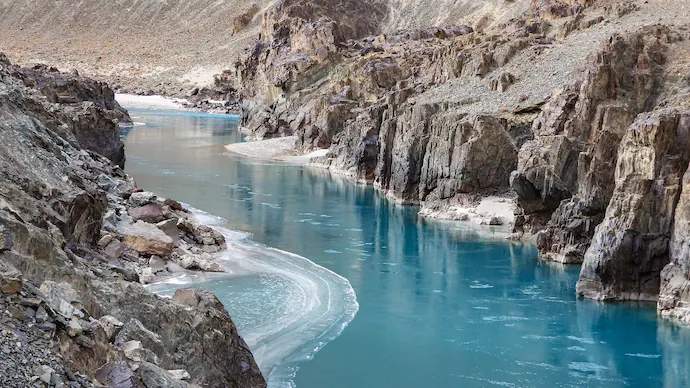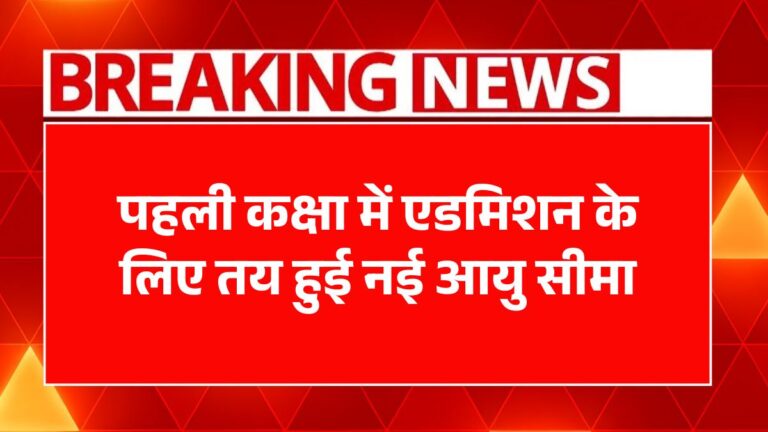
New Delhi, April 25, 2025 – In a move set to redefine geopolitics in South Asia, the Government of India has officially suspended the historic Indus Waters Treaty (IWT) of 1960 until Pakistan ceases its support for cross-border terrorism. This monumental decision, coupled with four other strategic steps targeting diplomatic, security, and visa protocols, is being termed a non-military strike of historic proportions—capable of pushing Pakistan to its knees without a single bullet being fired.
With more than 210 million Pakistani citizens likely to be affected, this development is being labeled as a watershed moment, reflecting India’s assertive new approach in tackling terrorism and protecting its national interests. The Indus River System, often described as Pakistan’s “lifeline,” will now become a geopolitical tool in India’s arsenal.
The Indus Waters Treaty: A Lifeline Turned Weapon
The Indus Waters Treaty, signed in 1960 under the aegis of the World Bank, divided the rivers of the Indus basin into two categories:
Western Rivers (Indus, Jhelum, Chenab): Allocated to Pakistan
Eastern Rivers (Ravi, Beas, Sutlej): Allocated to India
While India retained control over the eastern rivers, it was permitted limited usage of the western rivers, with most of the water flowing uninterrupted into Pakistan.
Over the decades, despite multiple wars and border skirmishes, India honored the treaty. However, given the increasing terrorist attacks traced back to Pakistani soil—such as the 2001 Indian Parliament attack, 2008 Mumbai attacks, Uri attack in 2016, and the Pulwama attack in 2019—public and political opinion has long been brewing in favor of revisiting this treaty.
India has now done just that—placing a lock on Pakistan’s water artery.
“Pakistan Will Kneel Without a Bullet”: Strategic Implications
Water as a Weapon
According to the data: 80% of the water from the Indus and its tributaries is received by Pakistan. Out of 16 million hectares of cultivable land, 80% of Pakistan’s agriculture depends on these rivers. The disruption of this flow could severely impact:
Food security
Drinking water supply
Hydroelectric power production
Agricultural exports
In a country already reeling under economic collapse, energy shortages, and food inflation, this decision could cripple Pakistan’s agrarian backbone.
The Five Historic Decisions by India
The Government has announced five landmark decisions, effective immediately or by May 1, 2025, as part of its strategic response:
1. Suspension of the Indus Waters Treaty
Condition: Suspension will continue until Pakistan ends cross-border terrorism.
Impact: This is the first time since 1960 that the treaty has been formally halted.
Water Storage and Use: India can now: Store Indus river water through dam projects. Utilize it for irrigation, power generation, and other domestic purposes. Divert unused western waters to Rajasthan, Punjab, and other drought-hit regions.
2. Immediate Closure of Attari-Wagah Border Check Post
All movement at this crucial land crossing has been halted with immediate effect. Individuals already in India with valid documents have been ordered to return before May 1, 2025.
3. Ban on SAARC Visa Exemptions for Pakistani Nationals
The SVES (SAARC Visa Exemption Scheme) has been revoked for all Pakistani citizens. All previously granted visas have been canceled. Pakistani citizens currently in India under SVES have been given 48 hours to leave. Entry under SVES is now permanently banned for Pakistanis.
4. Expulsion of Defense Personnel from Pakistani High Commission
Pakistani military and defense attachés stationed in Delhi have been declared persona non grata. They must leave within one week. India is also recalling its own military advisors from the Islamabad embassy.
5. Diplomatic Staff Reduction
Staff strength in both Indian and Pakistani missions is to be reduced from 55 to 30. This cutback takes effect on May 1, 2025. All vacated posts will now be considered null and void.
A Water Crisis Brewing in Pakistan
The treaty’s suspension has the potential to ignite:
1. Agricultural Catastrophe
With the majority of irrigated agriculture dependent on the Indus, crops such as wheat, rice, sugarcane, and cotton could be devastated. This would likely result in: Food shortages, Price inflation, Loss of livelihood for millions of farmers
2. Water Scarcity
237 million Pakistanis rely on the Indus Basin system for daily needs. Urban water supply and industrial use will be directly affected. Clean drinking water could become a luxury.
3. Energy Crisis
Pakistan’s hydroelectric power projects—especially in areas such as Jhelum and Neelum—rely heavily on uninterrupted river flows. Reduced water levels will impact electricity production, intensifying load-shedding and outages.
India’s Strategic Gains
This bold step offers India several potential advantages:
1. Development of Indigenous Infrastructure
India can now construct long-delayed dam projects like:
Pakal Dul
Ratle
Kishanganga
It may also divert excess waters into Thar Desert, Rajasthan, and water-stressed states.
2. Economic Boost for Indian Farmers
The water retained can be used to irrigate millions of hectares, enhancing agricultural yield and exports. This move also encourages the development of sustainable water management projects.
3. Assertion of Regional Dominance
The suspension sends a strong message across the region: India will no longer tolerate proxy terrorism. It also opens up legal and geopolitical avenues to renegotiate the treaty under newer frameworks.
Why This Decision is Historic
Experts believe this marks the beginning of a new water doctrine for India. For decades, India has refrained from leveraging water as a strategic asset—even when Pakistan waged wars and harbored terrorists. But this “Water Surgical Strike” now aligns India’s policy with realpolitik: It’s a non-military, non-violent, yet highly effective pressure tactic. It holds international legal validity, since Pakistan has consistently breached the spirit of peaceful coexistence outlined in the treaty. It also answers the domestic demand for a stronger national security stance.
Global Reactions & Diplomatic Ripple Effects
The suspension of a treaty brokered by the World Bank is likely to cause ripples internationally. Pakistan’s Response: Islamabad has labeled the move as “an act of war” and has appealed to the United Nations. China’s Reaction: As Pakistan’s ally, Beijing has expressed “deep concern” but has not taken any formal action. World Bank’s Stand: No formal comment yet, but it may push for bilateral talks or arbitration. India, however, is standing firm, with top officials stating that “national security overrides obsolete treaties.”
What Lies Ahead?
As Pakistan scrambles for contingency plans, India is expected to: Fast-track dam constructions in Jammu and Kashmir, Divert water flow toward arid regions like Barmer, Jaisalmer, and Kutch, Engage in global diplomacy to explain the rationale behind its decision…







